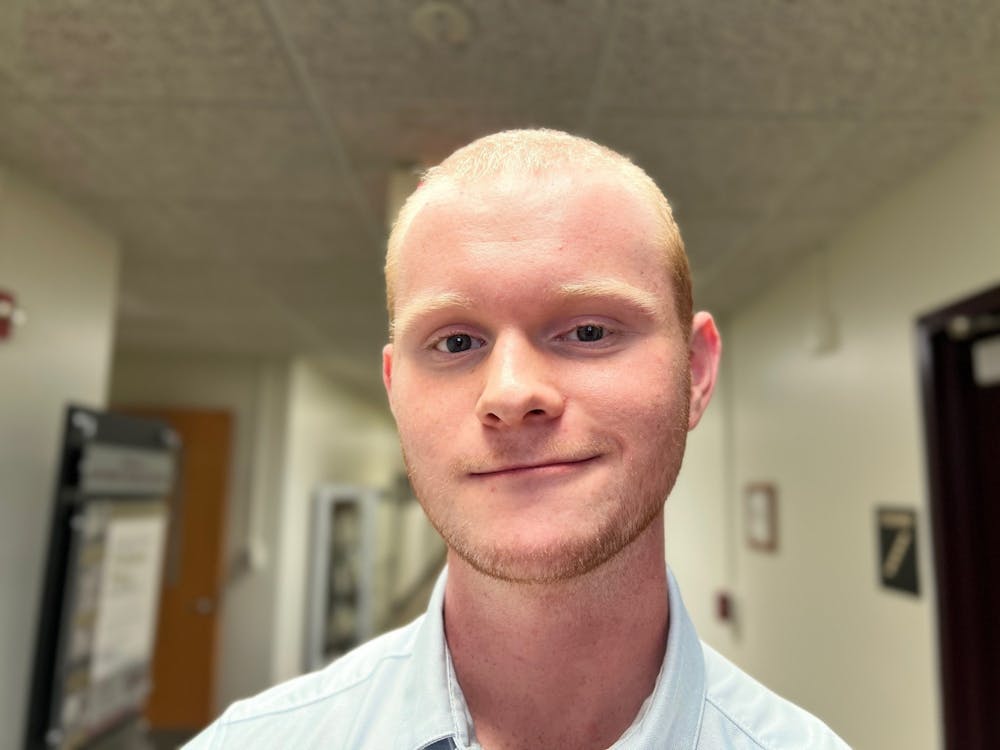COLUMN: Don't wait for a crisis to prioritize mental health
Things were looking up for me at the start of this summer. I was excited to be interning for the Traverse City Record Eagle and WCMU Public Radio.
On June 1, my second day in Traverse City, I went rollerblading to exercise and unwind after a day of work, proud of what I got done that day.
I wasn’t familiar with the bike trails in the area, which I learned can be essential for someone like me who was still bad at rollerblading. I quickly arrived at a hill I didn’t know about and couldn't stop myself from rolling down it. There was a turn coming up and I realized I would have to roll into the grass, but I didn't do it quite right and hit the ground hard.
Only five minutes cost me a dislocated shoulder, a dented bone and a tear. I had on-and-off pain all summer and couldn’t get the surgery I needed until a couple of weeks ago.
A day after the injury, I tested positive for COVID-19. The weekend after, I turned 21 years old.
Plans with family were cancelled. The man I was staying with and his girlfriend threw me an improvised, socially distanced party. I'm very grateful for their kindness, but it was hard to cheer me up.
It took me a week to recover from the virus but the pain from my shoulder came and went at random. I often missed out on valuable experience from my internship. I felt guilty and couldn’t help thinking my newsroom would’ve been better off with a different intern.
Summer activities I looked forward to, like backpacking in Northern Michigan, were reduced to streaming movies and playing video games on the couch.
I’m okay with being alone when I can stay busy and active, but most of the time I couldn’t do much.
I’ve never been diagnosed with depression, but some of my thoughts and feelings at the time were close to what I’ve heard having depression is like. I didn’t feel in control of my emotions. Intrusive, negative thoughts constantly creeped into my mind. I had no energy and had infrequent insomnia.
I felt disconnected from my friends and loved ones, which was only made worse by the distance between us. I’ve never felt comfortable talking about my feelings on the phone. I need an in-person connection.
Asking for help has always been hard for me. I feel like I’m burdening others and I don’t want to be misunderstood or judged.
Sometimes when I'm anxious, I act out these hypothetical conversations in my head. I imagine someone saying, 'You’re living in Traverse City in the summertime, how could you be sad?'
I waited to find a therapist, even though this wasn’t my first time struggling with mental health. I finally have an appointment in a few weeks.
If you feel like you need help too, there are answers out there.
Melissa Hutchinson, executive director of CMU counseling services, told me many students on campus are nervous to try counseling.
“It’s hard to reach out to a stranger and share your most vulnerable thoughts,” she said. “We don’t take that for granted.”
There are nine counselors on staff right now, and the clinic is searching for three more, she said. In addition to in-person counseling services five days per week, the clinic has telehealth sessions, Walk-in Wednesdays, alcohol and drug counseling and group sessions.
Therapy dogs will also return to campus on Sept. 9. Hutchinson said there is an art room in Foust 134, open on Fridays that students can use to relieve stress.
You can also ask your health insurance or doctor to help you find a therapist. A simple search online can lead you to countless mental health resources.
Don’t do what I did and wait for things to get worse before starting to build a support system.
Mental health resources are not reserved for emergencies.
It can be easy to forget there are people to talk to. Even if sometimes you feel completely alone, there are professionals and loved ones who care about you and want to support you through your darkest moments.




